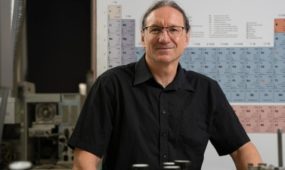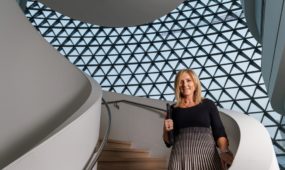Sunken treasures: world's underwater archeologists look south
Education
HUMANS past and present maintain an intimate relationship with water: our lives depend on it for hydration, food, transport, cultural rituals and more.

Sign up to receive notifications about new stories in this category.
Thank you for subscribing to story notifications.
From 2015-2018, the world’s expertise in examining our watery past will focus on South Australia, with Flinders University now chair of the UNESCO UNITWIN Network for Underwater Archaeology.
“Underwater archaeology is a specialist field of research that studies past societies, their maritime traditions and the interactions between people and marine and freshwater environments,” said Dr Jonathan Benjamin, who will serve jointly with Dr Wendy van Duivenvoorde as co-representatives of the Flinders Maritime Archaeology Program to chair the network.
Dr Benjamin is an expert on the underwater archaeology of submerged prehistoric landscapes, and has recently worked on submerged villages and settlements in the Mediterranean and Baltic Seas.
Dr van Duivenvoorde is a historic ship specialist and has explored a variety of wrecks worldwide, including the Dutch East India Company’s Batavia that sank off the coast of Western Australia in the 17th century.
“We study human beings of the past by scientifically investigating material culture left behind. There is an incredible amount of significant material that now lies under water,” explained Dr Benjamin.
Underwater archaeology is a field that benefits from collaboration across the world, with experts often spread quite thinly across multiple institutions.
“The UNITWIN Network for Underwater Archaeology provides a formalised international network under the UNESCO banner for collaboration, capacity building, mobility and partnerships,” said Dr Benjamin.
“It will mean more opportunities for Australian and international students of underwater archaeology, visits from international scholars and collaborative research activities across the world.”
The UNITWIN Network consists of 21 member institutions, including Selçuk University in Turkey, Southampton University in the UK, University of Southern Denmark and Texas A&M University in the USA.
President of the Australasian Institute for Maritime Archaeology (AIMA), Mr David Steinberg said that holding the Chair position is a strong endorsement of Flinders University as a leading institution in maritime archaeology research and training.
“The coordinating role will provide Flinders University with an even greater capacity to shape global research directions, initiate and develop collaborative research projects, and showcase work in South Australia, Australia and the greater Asia- Pacific region,” he said.
“Underwater archaeology provides a unique insight into our past, providing us greater understanding of where we came from, and what has shaped who we are today.”
As part of their planned activities as UNITWIN chairs, Drs Benjamin and van Duivenvoorde will host the first Australian UNITWIN Network meeting and workshop in Adelaide in November 2016, to coincide with the International Congress on Underwater Archaeology to be held in Fremantle, Western Australia.
“It is a great responsibility to lead a group of world class scholars, students and underwater archaeologists. We look forward to welcoming them to Australia in 2016,” said Dr Benjamin.
The workshop — 3D site recording and interpreting for underwater archaeology — will take place at Flinders’ new digital archaeology laboratory.
The $100 000 facility includes computing infrastructure optimised for 3D interpretation and modelling of footage recorded at underwater sites.
“The lab will bring underwater cultural heritage to people’s desktops, lap tops and tablets,” Dr Benjamin said.
Dr Benjamin and Dr van Duivenvoorde will also chair an underwater archaeology meeting at UNESCO headquarters in Paris in May 2016.
Two scholarships to support students in the field are now open and are offered in conjunction with the UNESCO UNITWIN Network for Underwater Archaeology.
Jump to next article



